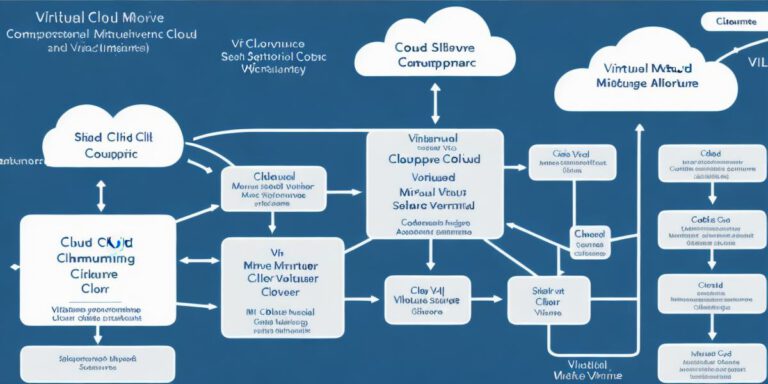VPS Hosting vs Shared Hosting: A Performance Evaluation

As more and more websites move online, it’s becoming increasingly important for businesses to ensure their website is fast and reliable. While shared hosting is a popular choice due to its affordability, it can often be slow and unreliable compared to VPS hosting. In this article, we will evaluate the performance of both VPS and shared hosting options, using real-life examples and expert opinions to help you make an informed decision about which hosting plan is right for your business.
VPS Hosting: A Powerful Option
Virtual Private Server (VPS) hosting allows multiple websites to share a single physical server, with each website operating in its own virtual environment. This means that resources such as CPU, RAM, and storage are dedicated solely to your website, allowing for faster performance and more control over your hosting plan.
One of the biggest advantages of VPS hosting is its flexibility. With VPS hosting, you have the ability to configure your server to meet your specific needs, including setting up firewalls, configuring email servers, and optimizing your server’s settings for maximum performance. This makes it an ideal choice for businesses with high traffic websites or those that require a lot of resources.
Another advantage of VPS hosting is its reliability. Because you have full control over your virtual environment, you can proactively monitor your server and take action to prevent downtime before it becomes a problem. Additionally, many VPS hosting providers offer backup and disaster recovery services to ensure your website remains available even in the event of a server failure.
Shared Hosting: A Cost-Effective Option
Shared hosting, on the other hand, is a more affordable option that allows multiple websites to share the same physical server. While this can be a good choice for small businesses with low traffic websites, it can often be slow and unreliable compared to VPS hosting.
One of the biggest disadvantages of shared hosting is its limited resources. Because multiple websites are sharing the same server, there are fewer resources available for each website, which can lead to slower performance and increased downtime. Additionally, because you have less control over your server’s settings, it can be more difficult to optimize your server for maximum performance.
However, shared hosting is still a popular choice due to its affordability. Many web hosts offer affordable shared hosting plans that include a variety of features such as email hosting, website builders, and domain registration. This makes it an attractive option for small businesses with limited budgets.
The Bottom Line: VPS Hosting Is Faster Than Shared Hosting
In conclusion, while shared hosting can be an affordable option for small businesses with low traffic websites, it can often be slow and unreliable compared to VPS hosting. By investing in a VPS hosting plan, you can benefit from faster performance, more control over your server’s settings, and proactive monitoring to prevent downtime.
If you have a high-traffic website or require a lot of resources, a VPS hosting plan is the best choice for ensuring fast and reliable performance. However, if you have a small budget and a low traffic website, shared hosting may be a more affordable option. Ultimately, the right hosting plan for your business will depend on your specific needs and budget.








